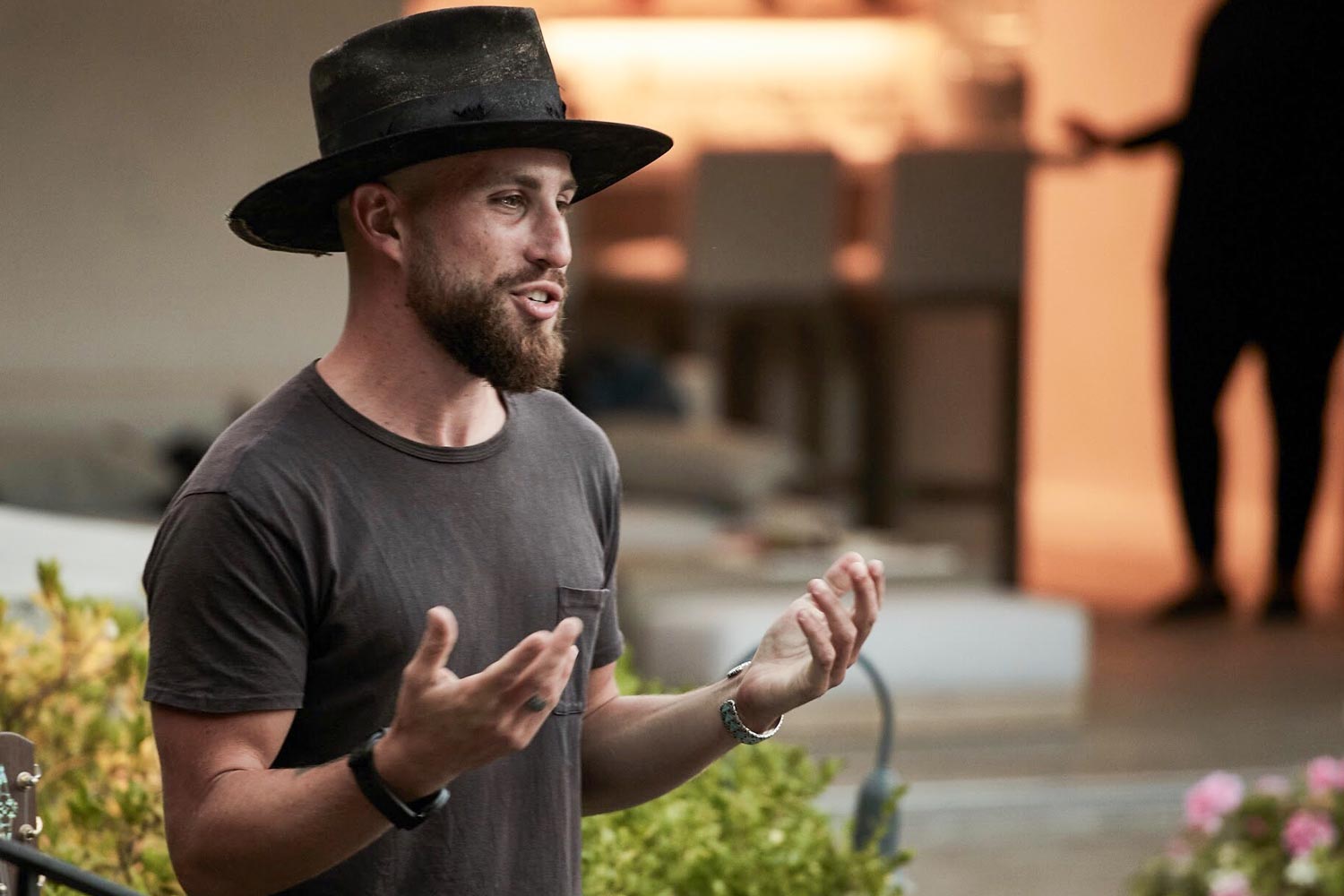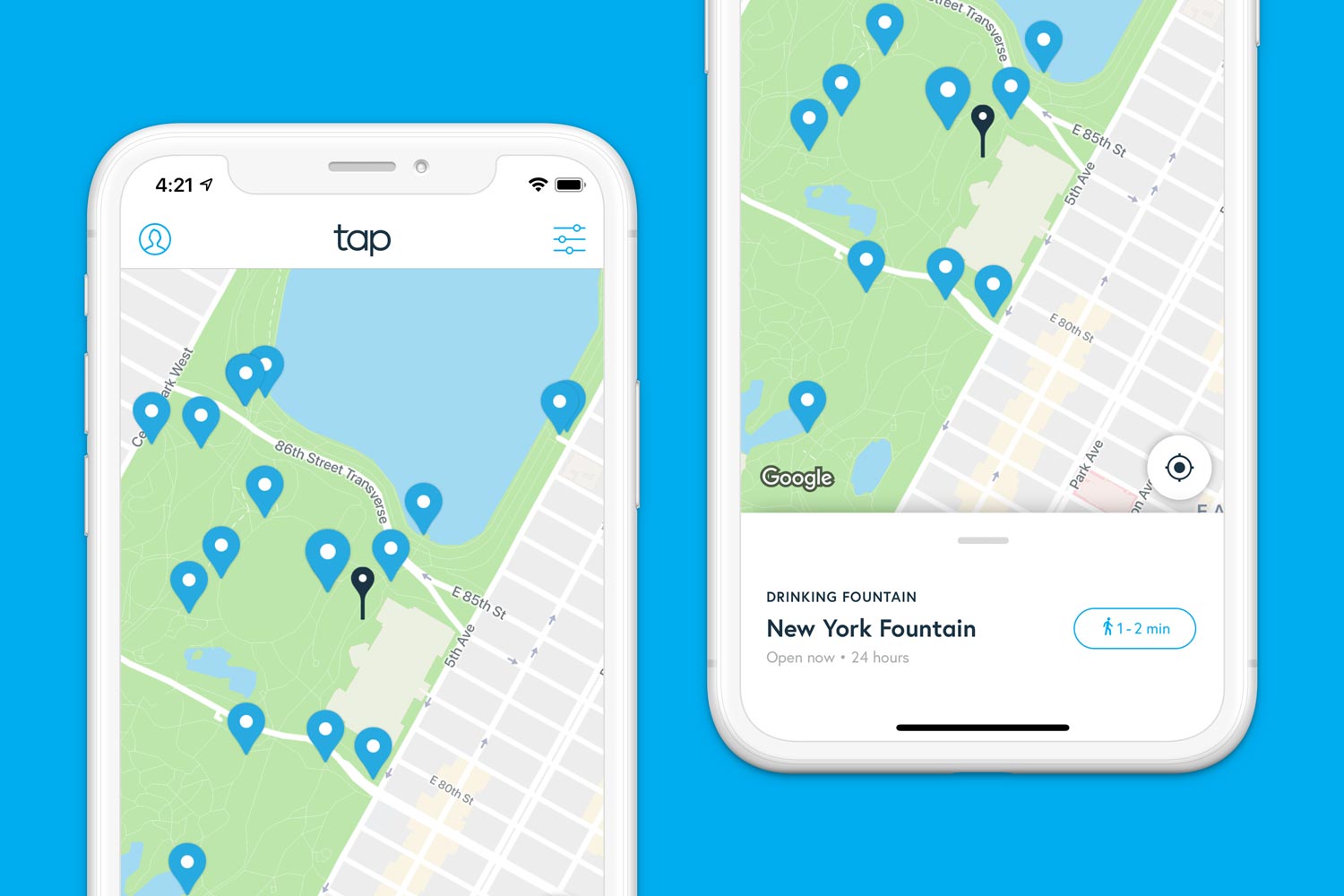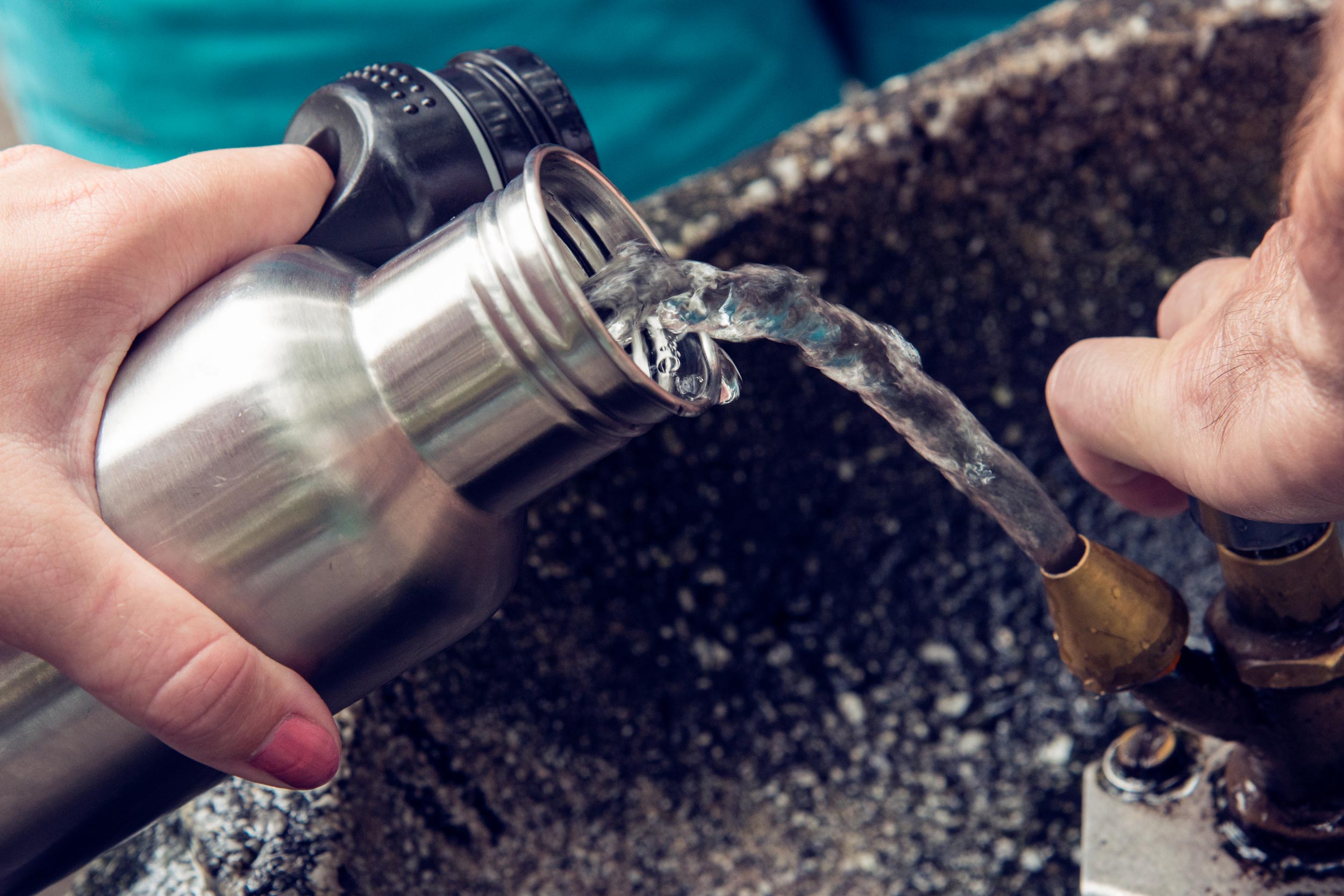Imagine this: you’re out for the day, maybe on the go for work or traveling in a new city. You’ve drained your water bottle dry and you’re getting thirsty, but there are no water fountains in sight. Where can you go to fill it up?
That’s exactly the problem that Samuel Ian Rosen, a 2007 graduate of the University of Virginia’s McIntire School of Commerce, is trying to solve.
His new startup, Tap, keeps track of thousands of refill stations – including public water fountains, cafes, restaurants and stores that offer water bottle refills – across more than 7,000 cities in 30 countries. Thirsty consumers can simply open the free app, pull up their location and look to see what is nearby.
“When I first moved to New York, I tried searching Google Maps for a water fountain to fill up my water bottle, but that information was not available,” Rosen said. “I realized that knowing where to fill up a reusable water bottle with could help people to stop using disposable, plastic water bottles.”

Samuel Rosen said his app that locates water-bottle filling stations adds convenience to users’ lives – and saves the environment from plastic bottles. (Submitted photo)
More and more people have begun carrying reusable water bottles, whether out of concern for the environment, worry about the possible health effects of drinking from plastic bottles or simple frugality. Carrying your own water can be much cheaper than purchasing plastic bottles over and over again.
For Rosen, the transition from disposable to reusable has become a personal crusade.
“I want to eliminate the single-use plastic water bottle,” he said. “It’s pretty crazy that companies can bottle up our tap water and sell it back to us at a higher price, with added plastic particles.”
Rosen started out working in investment banking, but quickly transitioned into entrepreneurship, founding and co-founding several companies since 2009 and earning a coveted spot on Forbes’ 2015 “30 Under 30” list. He said he has learned from each venture – both the successes and the failures – and feels very confident about Tap.
“The difference between founding Tap and founding my first venture is 10 years of experience,” he said. “I can look back on lessons learned and mistakes made, and I have the ability to reflect and change strategies, based on what I know now.”
Rosen also said he appreciates the idea of lifelong learning emphasized at UVA and how it has shaped his approach to entrepreneurship.
“What the University did best was to create a mindset to never stop learning,” he said. “What you studied in college does not matter as much as why you went where you did, what you learned there and who you became outside the classroom.”
At Tap, Rosen leads a 10-person team and relies on a network of contacts and users around the world to crowdsource refill locations. He is also building partnerships with restaurants and retailers, encouraging them to offer water to Tap users in exchange for the foot traffic the app can bring.
“Water drives foot traffic,” he said. “It is inherently valuable.”
Partner locations can put a blue “Tap” sticker in their window, indicating that they are open for refills. The app also notes if refills are free or have a fee, and if other beverages, such as sparkling or flavored water, are available.

The Tap app helps thirsty users locate nearby water filling stations.
The idea has caught on rapidly. According to Rosen, the Tap app, which launched in October and is available through the Tap website, was downloaded tens of thousands of times in the first two weeks. The app has earned coverage on media outlets including Forbes, CNN, Fast Company and others.
An ongoing social media campaign, #drinkdifferent, is encouraging Tap users to go 30 days without buying bottled water, and to share their pledge with others. Rosen hopes that more and more people will flock to not just the app, but to the idea.
“We can rebuild public water infrastructure in the U.S. with technology, and it starts with the user carrying his or her own bottle,” he said. “I believe making that change can change how people see the world. When you give up plastic water bottles, you start to realize how much is unnecessary in your life.”
Media Contact
Article Information
December 21, 2018
/content/need-water-go-alums-tap-app-will-help-you-find-it

